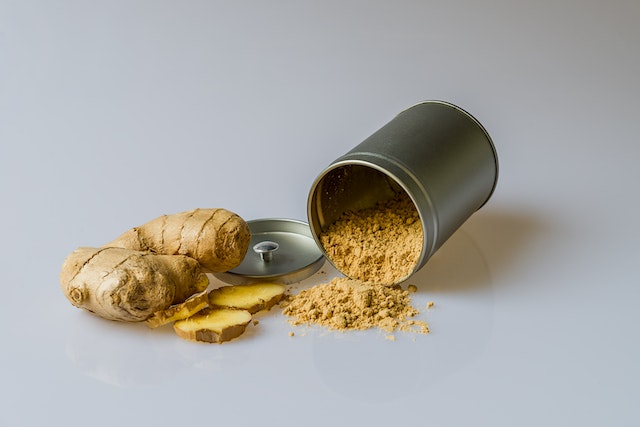Ginger, a root known as Zingiber officinale, has a long history of use in traditional medicine. It has a unique flavor and aroma and is valued for its numerous health benefits. In this article, we will delve into the healing properties of ginger and its benefits for human health.
The History of Ginger
Ginger has been used for thousands of years for medicinal purposes. Its use was documented in ancient China, India, Greece, and Rome. Ginger was popular in medieval Europe, where it was used to treat the plague.
Nutritional Value of Ginger
Ginger is a low-calorie spice that is rich in vitamins and minerals, including vitamin C, magnesium, and potassium. Ginger also contains antioxidants such as gingerols and shogaols that have been linked to several health benefits.
Health Benefits of Ginger
Digestive Health
Ginger is known for its ability to soothe digestive issues such as nausea and vomiting. Studies have shown that it can be effective in reducing symptoms of motion sickness, morning sickness, and chemotherapy-induced nausea. Ginger is also used to treat indigestion, bloating, and constipation.
Anti-Inflammatory Properties
Ginger contains powerful anti-inflammatory compounds that can help reduce pain and inflammation. It has been shown to be effective in reducing pain in people with osteoarthritis and rheumatoid arthritis. Ginger may also help reduce inflammation in the gut, which can improve digestive health.
Immune System Support
Ginger has immune-boosting properties that can help protect against illness and disease. It has been shown to be effective in fighting bacterial and viral infections, and it may also help prevent the development of certain cancers.
Respiratory Health
Ginger has been used for centuries to treat respiratory problems such as coughs and colds. It has natural antibacterial and antiviral properties that can help prevent and treat respiratory infections. Ginger may also help reduce inflammation in the airways, which can improve breathing.
Cardiovascular Health
Ginger may have benefits for cardiovascular health. Studies have shown that it can help reduce blood pressure and cholesterol levels, which are important risk factors for heart disease. Ginger may also help improve blood flow and prevent blood clots.
Brain Health
Ginger may have benefits for brain health. Studies have shown that it can help improve cognitive function and reduce symptoms of anxiety and depression. Ginger may also help protect against age-related cognitive decline.
Ginger and Cancer
Some studies suggest that ginger may have anti-cancer properties. Ginger contains several compounds that have been shown to have anti-cancer effects in test-tube studies. However, more research is needed to determine whether these effects translate to humans.
How to Use Ginger
There are many ways to incorporate ginger into your diet. Fresh ginger can be sliced or grated and added to stir-fries, soups, and curries. It can also be used to make tea or infused in hot water for a soothing drink. Ginger supplements are also available in various forms, including capsules, powders, and extracts.
Side Effects of Ginger
While ginger is generally considered safe, it can cause side effects, such as digestive issues like gas, bloating, and stomach discomfort. Ginger may also interact with certain medications, including blood thinners and diabetes medications. If you are pregnant or breastfeeding, you should speak to your doctor before taking ginger supplements.
Precautions and Warnings
Ginger supplements should not be used by children under the age of 2. Additionally, ginger can interact with certain medications, so it is important to speak to your doctor before taking ginger if you are on medication.
Conclusion
Ginger is a wonder spice that has been cherished for centuries due to its remarkable versatility in treating a myriad of ailments. Its extensive range of health benefits includes aiding digestion, mitigating inflammation, bolstering the immune system, and promoting cardiovascular and brain health. Despite its generally safe reputation, ginger may cause side effects and interact with specific medications. It is crucial to consult a physician before utilizing ginger for medicinal purposes.
FAQs
Is ginger suitable for pregnant women?
While ginger is typically safe for the general population, pregnant women should first consult their healthcare provider before using ginger supplements.
Can ginger supplements interfere with medication?
Indeed, ginger supplements can interact with particular medications, such as diabetes medications and blood thinners. It is crucial to discuss ginger usage with your healthcare provider if you are currently taking medication.
What is the recommended dosage of ginger for medicinal use?
The ideal dosage of ginger is dependent on the condition being treated. It is vital to consult a qualified healthcare provider or doctor to determine the appropriate dose.
Can ginger assist with weight loss?
Although ginger has not been proven to directly facilitate weight loss, it may help reduce inflammation and improve digestion, leading to indirect weight loss.
What is the most effective method of utilizing ginger for medicinal purposes?
The best way to incorporate ginger into your diet for medicinal purposes is to use fresh ginger in soups, stir-fries, and curries, or to prepare ginger tea. Ginger supplements, including capsules and powders, are also available in various forms.
